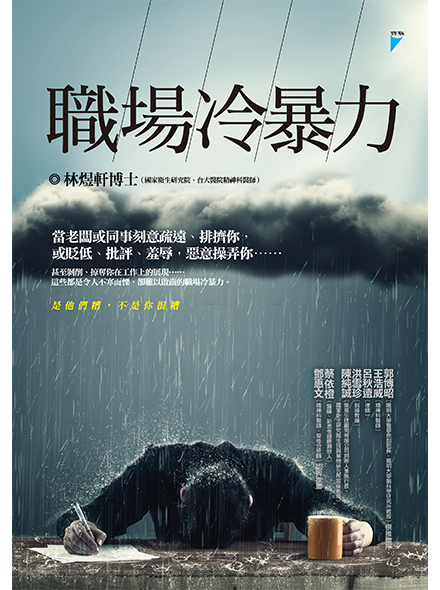“Emotional Blackmail is going to a second printing.” “Emotional Blackmail is now on its third printing!” “We can’t keep this book on the shelves, we’ll have to do a 5,000-copy run!” …
This was the book-buying frenzy that ensued just one month into the publication of psychologist Chou Mu-Tzu’s (周慕姿) first book, Emotional Blackmail (Aquarius Publishing) (情緒勒索). In an era when selling 5,000 copies qualifies as “best-selling”, Chou’s first volume not only sold over 10,000 copies in the first month, but it has also gone on to sell more than a total of 250,000 copies to date. Additionally, the rights for the book were also sold in Mainland China, Korea, Thailand, Vietnam, Singapore, Malaysia, and Indonesia.
The book, which teaches people how to recognize emotional manipulation and set social boundaries, was published right before Taiwan’s traditional new year’s festival, a holiday that sees family members all reuniting under one roof to ring in the new year. Clearly, this unprecedent subject matter, combined with the author’s forceful and clear-cut elucidation, deeply resonated with the afflictions of a readership that had just been subject to the precipitous increase in stressful social relations that accompanies the extended holiday.

Emotional Blackmail
The book became a kind of cultural phenomenon and its effects continued to ripple out to readers young and old—spotting an elementary school-aged boy leafing through the book at a bookstore, a colleague couldn’t help but wonder how many times the boy had been emotionally blackmailed by adults with the line “I’m doing this for your own good”?
This bestselling tsunami inspired the publishing world to take the deep and expansive waters of the self-help book market more seriously and successive titles on a wide variety of related subjects helped improve the accessibility of the material. As more and more of these titles became available to readers, they began to realize they were not the only ones that felt the way they did, and gained new insight into previously unfathomable emotional worlds. This all helped to curtail some of the previous reluctance towards seeking out self-help books. Spurred on by these synergistic developments in the publishing world and readers’ predilections, self-help became a trending sector of the publishing market.
Indeed, the world we live in can be quite a depressing place and commensurate feelings of emptiness and anxiety no doubt leave people thirsting ever more for antidotes and escapes! Prior to the publication of Emotional Blackmail (情緒勒索), the non-fiction market was dominated by books on business and finance, parenting and health—by contrast, other than professional reference books, and titles released by publishers that specialized in the subject, books on self-help marketed to the general public were few and far between. Thus, for a veteran publisher like Aquarius, the sudden, dramatic increase in popularity of self-help books was observed even more readily at that time.
Starting with titles on the idea of “learning to love yourself” and expanding outwards, books by counselling/clinical psychologists became a mainstay of the Taiwanese book market. Soon, psychiatrists also entered the fray and a lively discourse unfolded between various schools of thought, each with their own strengths and specializations. This expansion and intensification of the conversation surrounding psychology in the book market led to an increasing specificity in the subcategories of subjects explored.

Smiling Depression
Subjects covered included setting social boundaries and understanding emotions (Particularly negative emotions, addressed in Don’t Let Negative Emotions Hold You Captive (別讓負面情緒綁架你) by the counseling psychologist Hu Chan-hao (胡展皓) and Smiling Depression (微笑憂鬱) by clinical psychologist Hung Pei-yun (洪培芸)), parenting, love, marriage and trauma from workplace relationships (See Cold Violence: The Pervasive Abuse in the Workplace (職場冷暴力) by psychiatrist Lin Yu-hsuan (林煜軒)), anxiety (Chronic Anxiety (慢性焦慮) by counseling psychologist Chuang Po-an (莊博安)), and even dealing with peers with personality disorders (See The Scumbag: A Personality Disorder (渣男:病態人格) by psychiatrist Wang Feng-kang (王俸鋼)) etc.

Cold Violence: The Pervasive Abuse in the Workplace